
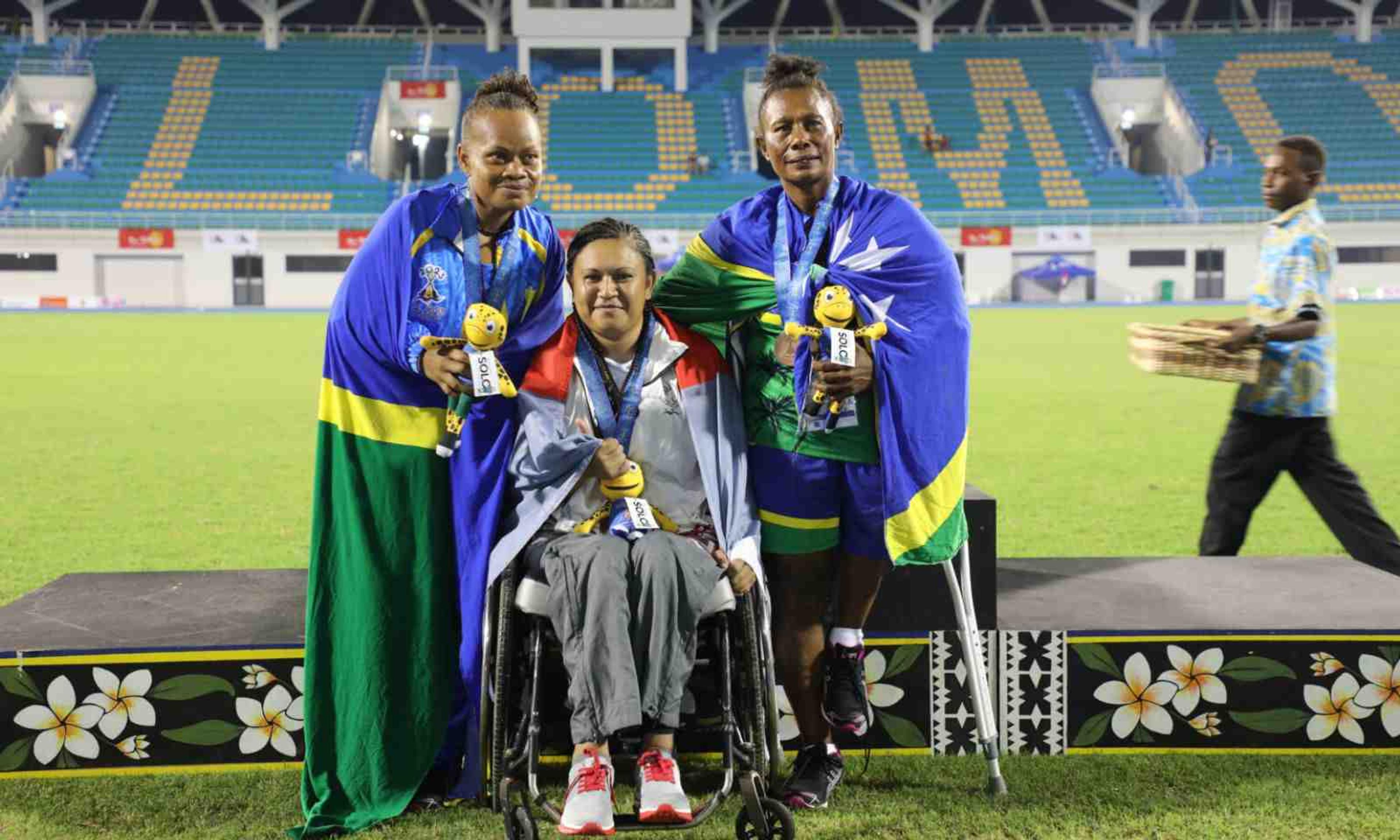
The three competitors made history, but the race was not without its challenges.
Photo/Pacific Games News Service/Danzo Kakadi
Pacific Games 2023: New Caledonia and Solomon Islands win big in 100m wheelchair run
New Caledonia claimed double gold while the host nation took out half of the medals in the division's debut.

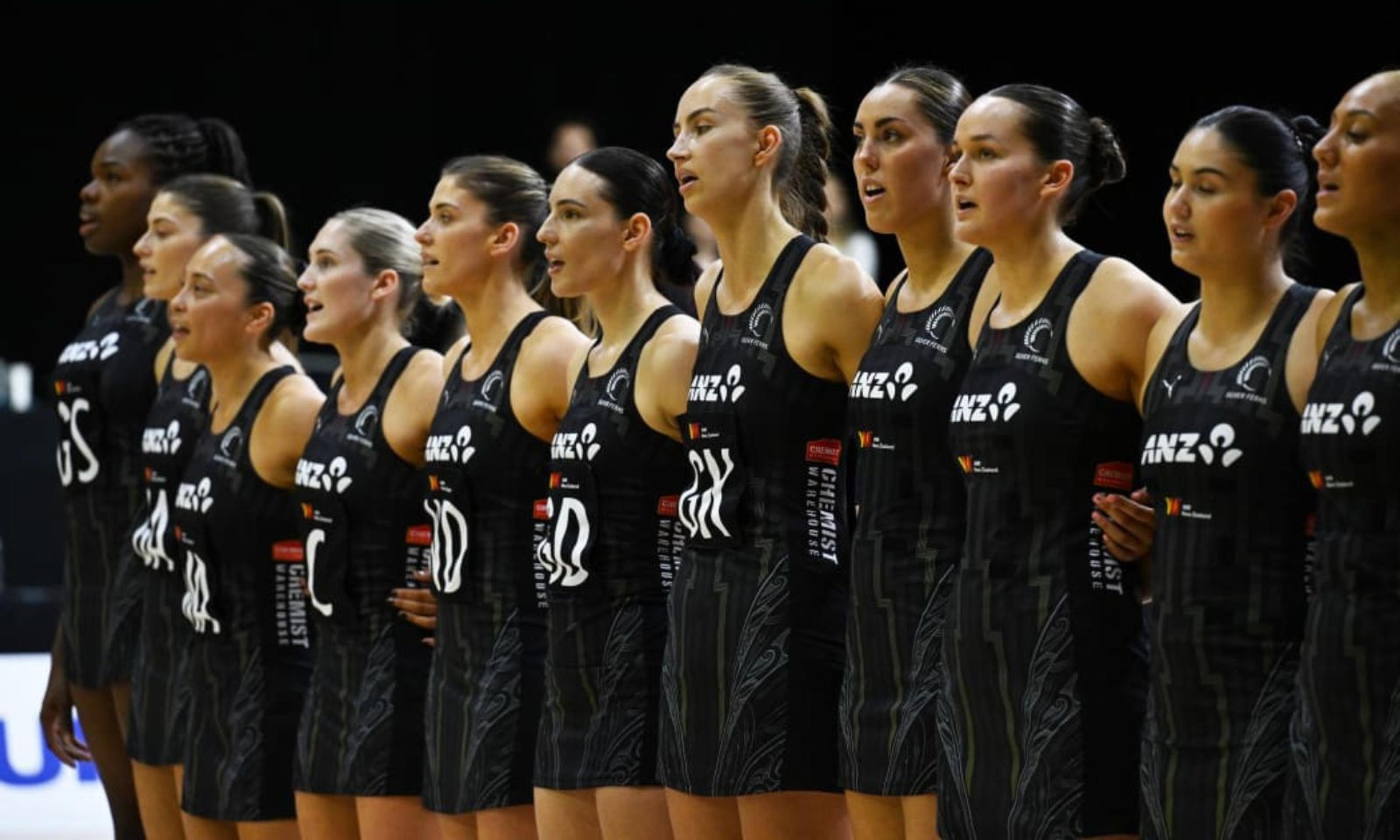

Fiji’s former Prime Minister and police chief charged with inciting mutiny
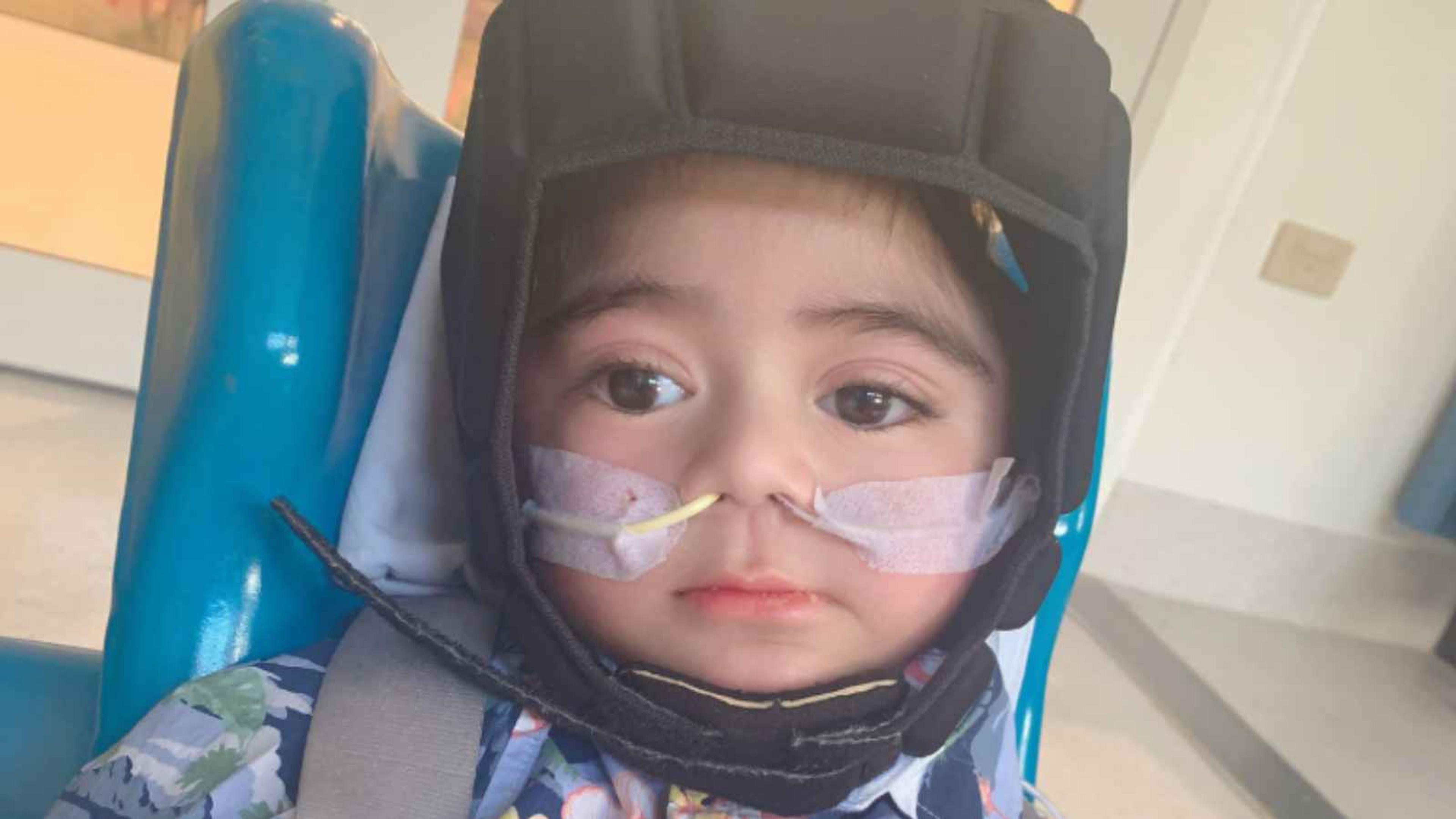
Immigration reassesses toddler's declined visa request as Children's Commissioner steps in

US funding cuts threaten to 'dry up' future of Pacific scientists - expert


Fiji’s former Prime Minister and police chief charged with inciting mutiny

Immigration reassesses toddler's declined visa request as Children's Commissioner steps in
New Caledonia took double gold in the first ever Pacific Games women's and men's 100m wheelchair run at Solomon Island's National Stadium in Honiara.
Anna Pipisega of New Caledonia came first in the women's run with a time of 25.23 seconds, becoming the division's first gold champion.
Speaking to Pacific Games News Service (PGNS), Pipisega shared her gratitude.
"I want to thank my family, my friends and everyone who supported me and my colleagues," she says.
"I’d like to thank everyone in New Caledonia for their support and the messages they have sent to me."
In the wheelchair category, Para athletes' results are measured against their classification to determine their final placings percentage.
A percentage closest to 100 reflects a better ranking and therefore the highest ranked competitor at the end wins.
In Pipisega's case her final placing was 64.16 per cent against a T53/F55 classification.
A T53 classification is for "wheelchair track athletes who have movement affected to a high degree in the trunk and legs", while an F55 classification covers those with movement affected to a high degree in the legs or the absence of limbs.
Pipisega says her sights are now set on qualifying for the Paris 2024 Paralympic Games.
"I've been doing the chair for five or six months. I only started this year," she says.
"We’re going to try to see what happens in the qualifiers. We’re going to work flat out and hopefully I’ll go to the Paralympics."
Solomon Island's claimed silver and bronze behind New Caledonia's Pipisega, adding on to them hosting the historic debut of the 100m wheelchair divisions.
Noela Olo finished with a time of 32.48 seconds for silver and a placing percentage of 47.25 per cent against her T/F54 classification.
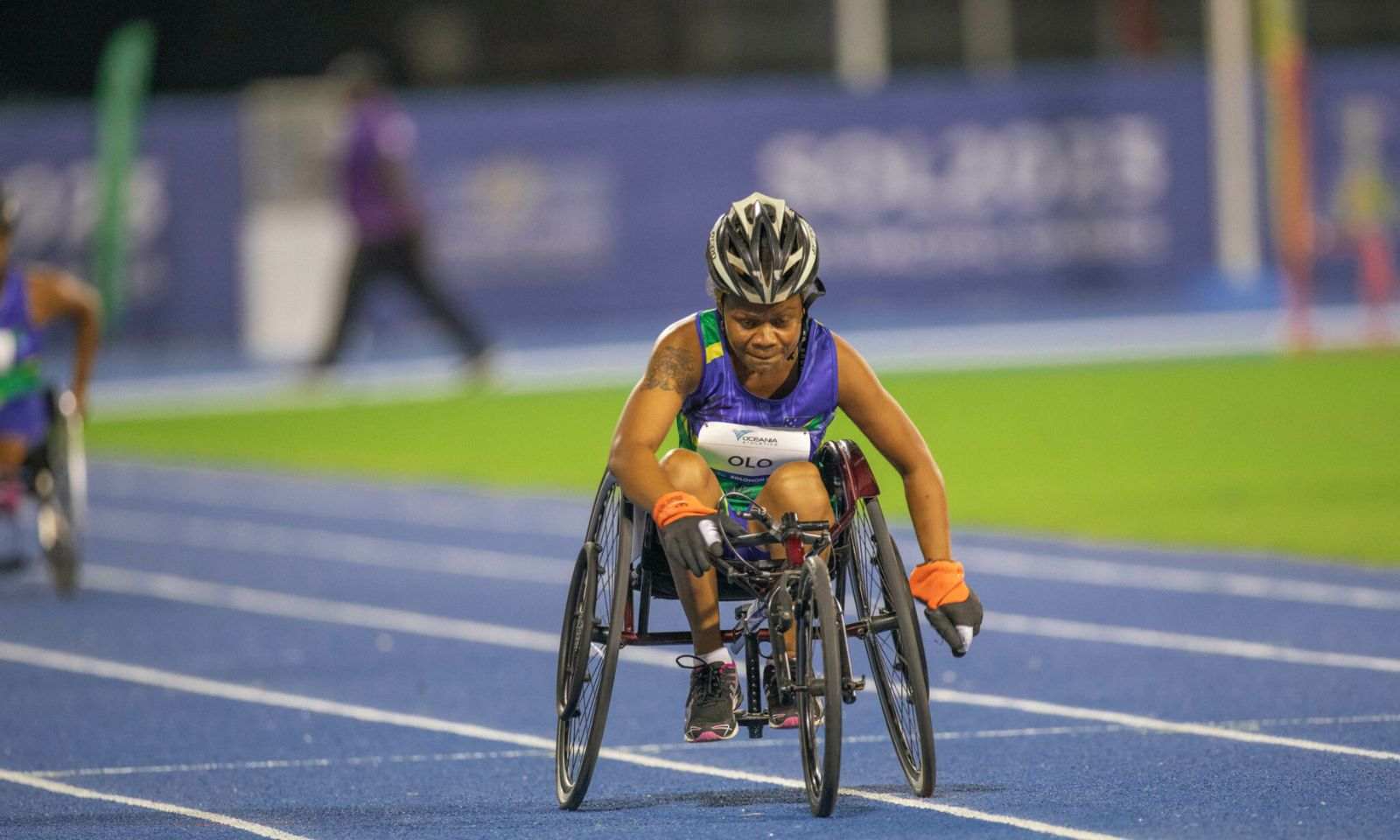
Noela Olo on the track. Photo/Pacific Games News Service/Danzo Kakadi
T54 is for wheelchair track atheletes who have full function in their body with moderately or highly affected movement in the legs or the absence of legs.
F54 describes athletes with movement affected to a high degree in the mid-trunk and legs.
Olo, who had neither trained for or competed in racing before, says the last-minute decision was worth it.
"I finished my other Games events in table tennis, and I have shot put on Thursday and for this race, they told me they wanted me to try it, so I tried it," she says.
"It was also a last-minute decision for me to take part in this event. I never trained, they just put me into it, but I just tried my best."
Rose Lidia swept bronze with a time of 49.89 seconds and a final placing percentage of 30.76 against her T/F54 classificaiton.
Lidia says although she had a good race that improper equipment was stifiling.
"It was difficult and very challenging. I wish I ahd a proper wheelchair for training so I could race better," she says.
100m wheelchair mens: New Caledonia claims another golden victory
Pierre Fairbank of New Caledonia won the 100m wheelchair mens race with a time of 17.08 seconds, sharing the first gold spot alongside Pipisega.
Fairbank's placing percentage was 82.55 per cent against his T53 classification.
Speaking to the PGNS, Fairbank says he is delighted to win the first 100m wheelchair run at the Pacific Games.
“It was a good night, a great experience and I enjoyed myself,” he says.
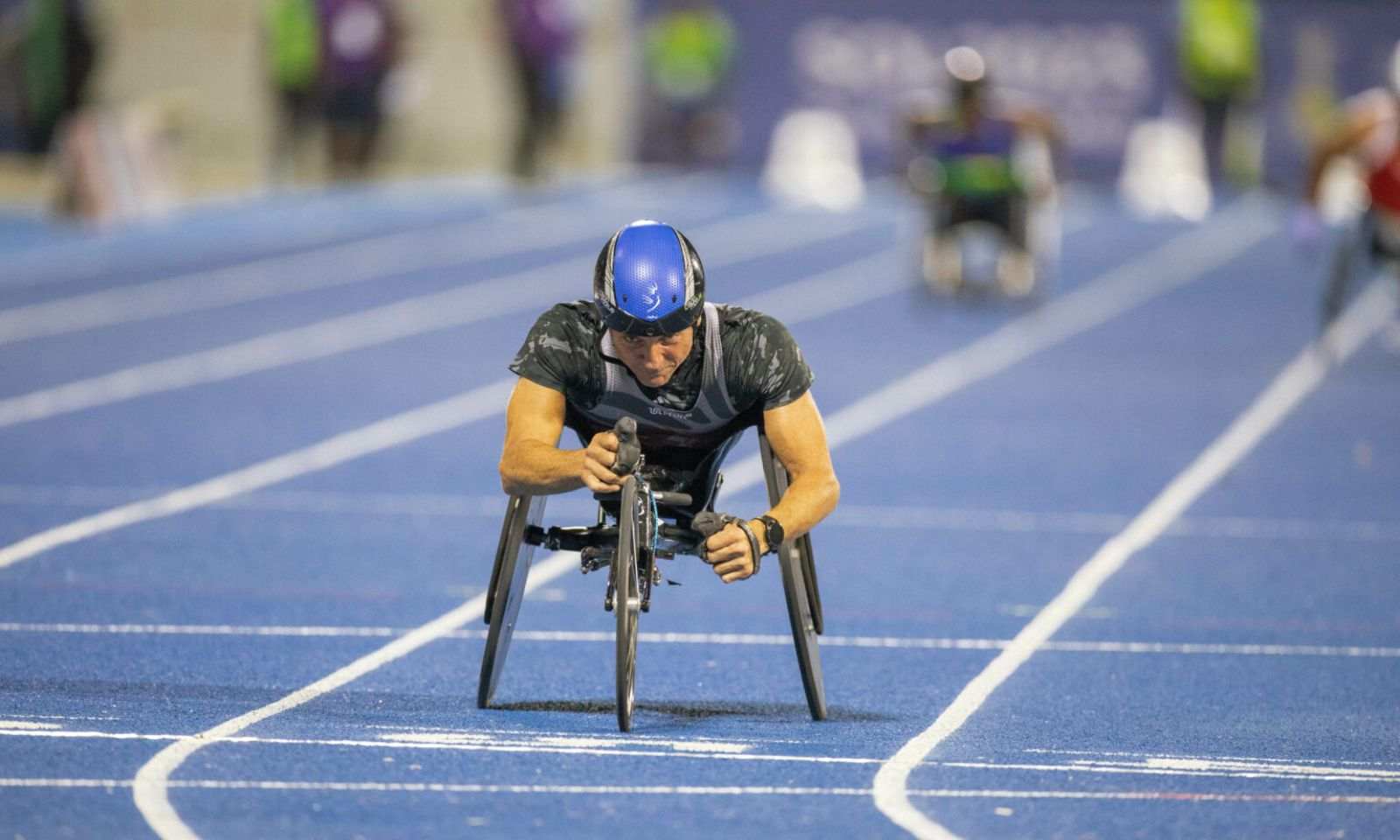
Pierre Fairbank wins gold for New Caledonia. Photo/Pacific Games News Service/Danzo Kakadi
Fairbank says he is thankful that New Caledonia lent wheelchairs to the Solomon Islands and Tahiti so that they could compete against one another.
"We’re very happy. We're talking about sport at the Pacific Games that’s great for promoting discipline."
Behind Fairbank was Solomon Island's Moffet Tolomae who won silver with a time of 23.55 seconds.
Tolomae's percentage placing was 57.87 against his F57, which describes a field athlete whose movement is affected to a low degree in one leg, moderately in both feet or the absence of limbs.
"It was challenging as it was my first time to do 100m wheelchair," Tolomae says.
"We don't have proper equipment, but I am so proud that I got silver."
Tahiti's Christian Chee Aye claimed bronze with a time of 28.49 seconds, placing a per centage of 47.84 per cent, against his F56 classification.
F56 is for athletes with an increasing degree of impairment affecting the legs, or the absence of limbs.'
Watch some video highlights of recent Pacific Games action:
Day eight medal tally wrap
New Caledonia continued on their winning ways, holding a 30 gold margin over second place, with a total of 67.
Australia follow in second adding an impressive eight gold on day eight for a total of 37.
Tahiti also added eight gold for a total of 33.
Day eight total medals earned wrap
New Caledonia lead with 150 total medals earned, while Tahiti is second with 111 then Australia at 65.
Other day eight results
Samoa have 57 medals total, while Fiji holds 50 with Cook Islands and Tonga holding 13 apiece then finally Kiribati at eight.
New Zealand ended day eight with a total of 27 with eight gold, nine silver and 10 bronze.
Keep up with us to keep up to date with this year's Pacific Games on our site: pmn.co.nz or through our socials: Instagram, TikTok and X (formerly known as Twitter).